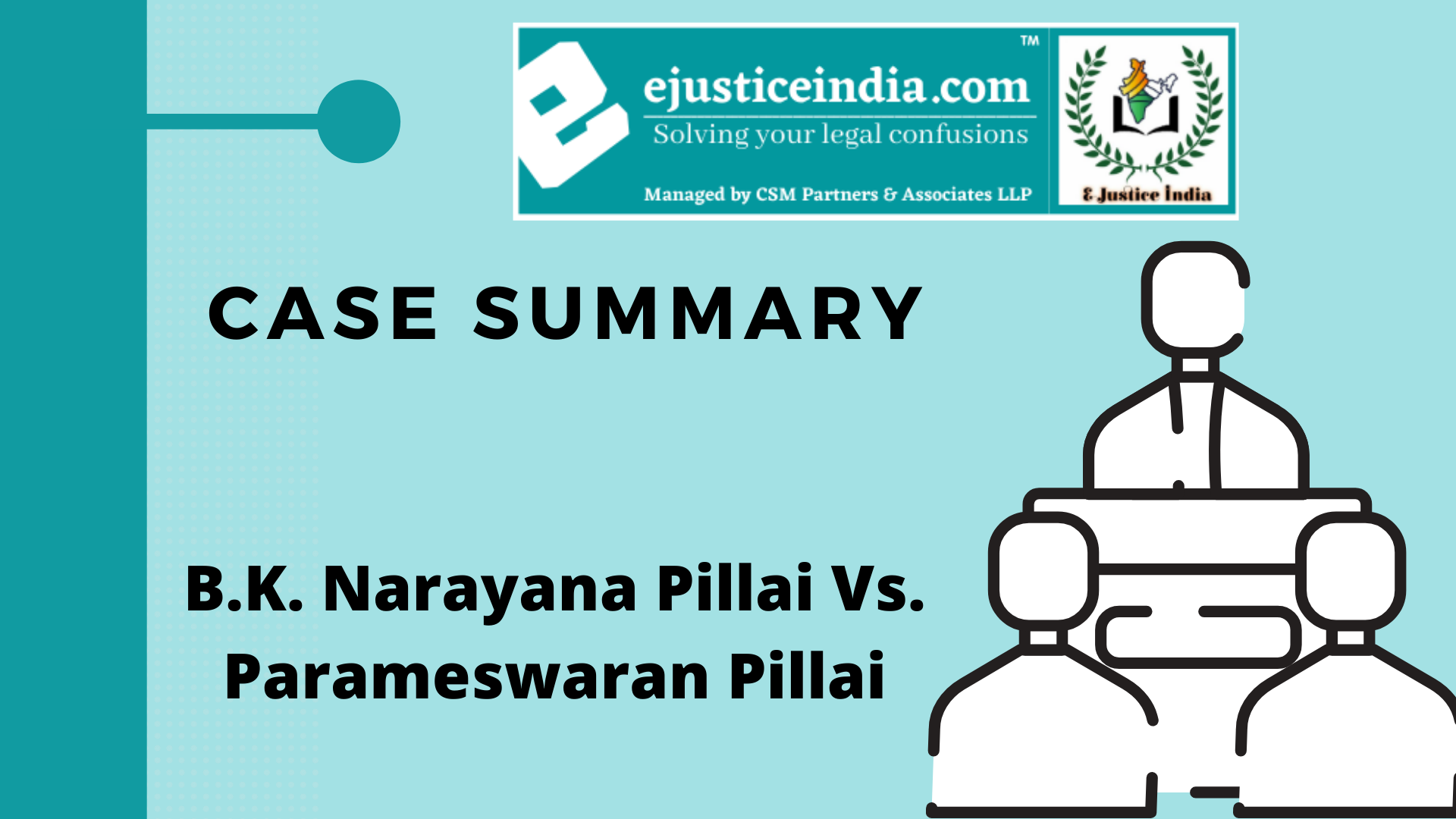QUEEN EMPRESS V. KHANDU VALAD : CASE SUMMARY
Author : M Sameer
Case Name : QUEEN EMPRESS V KHANDU VALAD
EQUIVALENT CITATIONS:
1891 ILR BOM 194
BENCH:
Mr.Justice Charles Sargent, Mr.Justice Birdwood, Mr.Justice Parsons.
INTRODUCTION:
In criminal law Actus reus and mens rea are the essential elements which constitutes crime, it’s prosecutor duty to make a case without a reasonable doubt. Even a slight doubt will make a great defence for accused and get him acquitted. When it comes to murder it’s very important for prosecutor to make strong case. Not only murder it may be any kind of offence it’s essential that both actus reus and mens rea should be there,absence of anyone will create a doubt that makes a accused acquittal or makes big difference in verdict.
FACTS:
Accused wife ran away from his house it’s been seven days and this is not the first time, it happens frequently and accuse will find her in his father-in-law house, like always accuse went to his father-in-law house to get her. Accuse confessed before second class magistrate accuse said “ He went to his father-in-law house,first he assaulted me with stick on my back and on the ears and then I went back to my hometown. I was very angry and i went back with the intention of killing him. I gave him three blows one in his back with force and other two in ears each ear, he feel down and died, then in order to destroy evidence I placed a box full of fir wood under his head, i burned his house along with him” but he retracted his confession before court of sessions though he was charged with guilty of murder under section 302 of Indian Penal Code in order to confirm case verdict went to high court, there accuse advocate Mr.Balaji Abaji Bhagvat pleaded that civil surgeon statement was not taken by the court of sessions as per his plea based on civil surgeon statement, accuse gave three blows to his father-in-law but he was not dead he was stunned and unconscious state, accuse thought he was dead on his assumption he further went on to destroy the evidence by burning him along with his house. His father-in-law didn’t died because of blows he died because of fire burn, so accused is not guilty of murder.
ISSUES AND FACTS OF LAW:
- Whether his three blows act and burning act both are in continuation accelerated deceased death? .
- Whether actus reus and mens rea present in both acts?
- Whether accused had the knowledge that he is alive after the blows that he gave to the deceased and whether he had the intention to kill him by placing him on burning house?
JUDGEMENT:
Mr.Justice Charles Sargent held that by the confession made by the accused as well as the statement of civil surgeon that accuse act of giving three blows to the deceased were not fatal, even after that blows he would have died he just went senseless so there is no chance that burning him along with his house accelerated his death.The question here is accused had the intention of killing deceased while he hit him with blows but deceased was alive after that following that he burnt him but he didn’t had the intention of killing him, he just had the intention of destroying evidence,in order to charge someone under section 299 of IPC culpable homicide intention and knowledge are essential or fatal injury leads to death is necessary but in this case one event have intention and act but act resulted different then intended while other event had act of killing the deceased but his intention is to destroy evidence not to kill him, so it is clear that their was a lack of intention to kill while deceased died because of this accused charged with guilt of Attempt to murder as per sec 307 of Indian Penal Code 1860.


